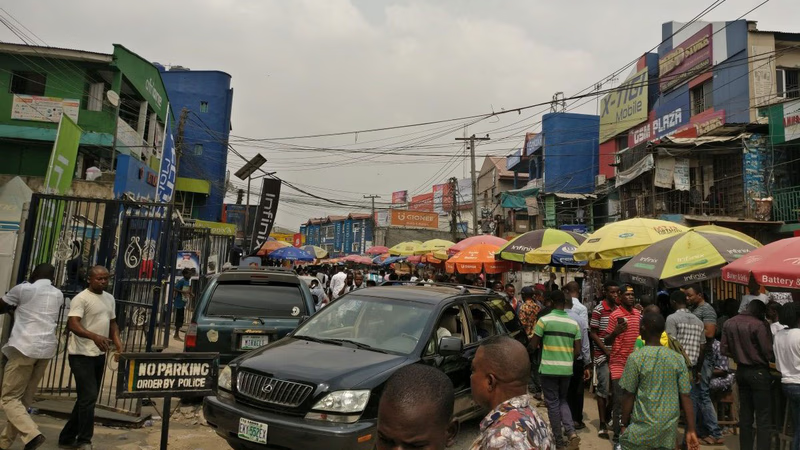
Nigeria, as the largest economy in Africa, presents significant opportunities for trade, especially in sectors like oil, gas, agriculture, telecommunications, and services. Nigeria`s economy is heavily dependent on oil, which accounts for the majority of its export earnings. However, there is a growing diversification effort, particularly in agriculture, as the country seeks to reduce its dependency on crude oil. Nigeria is also part of the African Continental Free Trade Area (AfCFTA), which has the potential to open up more intra-African trade opportunities and partnerships.
The banking and financial system in Nigeria is relatively well-developed compared to many African counterparts, with a growing fintech sector driving innovation in mobile payments and online banking. The Central Bank of Nigeria (CBN) regulates the banking system, and it has implemented various reforms aimed at improving financial stability and increasing financial inclusion. Nigeria also has a two-tier currency system, with the official rate for foreign transactions managed by the CBN and a parallel market that often has a more fluctuating exchange rate.
Regarding trade relations between Nigeria and the Middle East or West Asia, the country has increasingly sought to expand its trading partnerships outside of its traditional partners like Europe and the United States. Nigeria imports a range of goods, including machinery, pharmaceuticals, and consumer products, from the Middle East, while exporting oil, gas, and agricultural products to the region. Countries like the UAE and Saudi Arabia have strengthened trade ties with Nigeria through both governmental agreements and private sector initiatives. Nigeria is an attractive market for Middle Eastern investors, particularly in infrastructure, real estate, and energy sectors.
Despite the opportunities, there are challenges such as bureaucratic hurdles, corruption, and infrastructure deficiencies that can make doing business in Nigeria difficult. Import-export procedures can be lengthy, and there are sometimes currency risks due to the fluctuating value of the naira. Still, with its large population and market potential, Nigeria remains a key economic hub for Africa and an important trading partner for countries in the Middle East.
-
 Agia Adonai Nigeria Limited 3 months ago
Agia Adonai Nigeria Limited 3 months ago Nigeria
Diamond
Nigeria
Diamond
I have a white diamond 💎 I have a yellow diamond 💎 and a golden diamond 💎Details
-
 Elegance Services 8 months ago
Elegance Services 8 months ago Nigeria
Aluminum ingots 99.97%
Nigeria
Aluminum ingots 99.97%
Good day Sir/Ma \nPlease we need a very genuine seller of Aluminum ingots 99.97%\n\nQuantity is 10,000 MT monthly \nCountry is 12 months \nDestination...Details
In 2025, Nigeria"s economic landscape presents a mix of challenges and opportunities for international trade, especially for entrepreneurs targeting the West Asian markets. The Nigerian GDP saw a significant decline in 2023, dropping to $363. 8 billion from $477. 4 billion in 2022, contrasting with a global GDP average of $883. 7 billion. This decline indicates potential macroeconomic instability, emphasized by a soaring inflation rate that reached 24. 66% in 2023, significantly higher than the global average of 8. 59%.
Such inflationary pressures could affect purchasing power and cost structures, posing risks for businesses engaged in the Nigerian market. On the trade front, Nigeria"s merchandise import value index decreased to 81. 9 in 2023, indicating a contraction in import activities compared to a global average index of 101. 1. Conversely, the merchandise export volume index increased to 110. 6, surpassing the global average of 108. 4. This growth reflects a strategic shift towards boosting export activities, despite the declining value index, which fell to 87.
5, below the global average of 102. 3. Such trends underscore the need for businesses to leverage Nigeria"s export potential, particularly in sectors that can capitalize on competitive pricing and regional demand in West Asia. The indices for import and export unit values also reflect Nigeria"s trade dynamics. Import unit values dropped to 92. 5, below the global index of 96. 8, while export unit values fell sharply to 79. 1.
These fluctuations suggest volatility in trade terms, providing both challenges and opportunities for market entrants. For businesses looking to navigate these complexities, platforms like Aritral. com offer valuable tools. By leveraging AI-driven insights and global sales assistance, companies can better manage trade risks and optimize their presence in Middle Eastern markets. We encourage entrepreneurs to create a business profile on Aritral. com to enhance their trade strategies and gain visibility in Nigeria"s evolving market landscape. "



